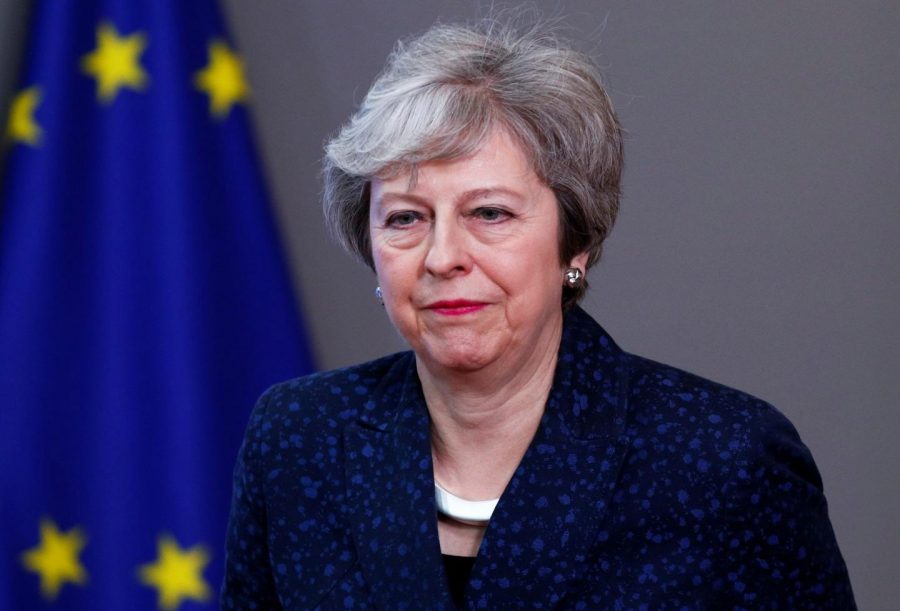
Brexit deal faces 'unknown unknowns'; puts May's position on line

In London’s tourist circuit, near Westminster, is a maze that is so befuddling it is not recommended for the faint-hearted. Britain today finds itself, willy-nilly, in a similar maze over Brexit.
Since the Brexit vote in June 2016 where those wanting the United Kingdom to leave the
European Union registered a narrow victory the country has found itself in an existential
dilemma the contours of which has the potential to even break up the once imperial power.
The British parliament, which needs to formalise and finalise the nitty-gritty of leaving the
European Union, has simply been unable to come to an agreement on how this needs to be
worked.
As former US defence secretary Donald Rumsfeld once said though in a different context,
“There are known knowns. These are things we know that we know. There are known
unknowns. That is to say, there are things that we know we don’t know. But there are also unknown unknowns. There are things we don’t know we don’t know.” In many ways, this quote could well describe Britain’s predicament.
“Brexit” itself has become the centre of ridicule in the media. A woman tweeted she
had named her dog Brexit because after barking to be let out, he doesn’t leave when the door is thrown open. A new word “Brexiting” has been added to the English dictionary. It means, for example, in a party someone insists they want to leave but remains until the end.
Jokes apart, the situation is deadly serious. Cutting through the clutter of confusion, there
are two key problems that is at the heart of Britain’s dilemma. The first is the open border
that now exists between the British island territory of Northern Ireland and the independent
Republic of Ireland to its south.
After decades of battling Irish separatists who wanted to leave Britain and join the
independent republic to the south, the Good Friday agreement in 1998 resulted in an end to secessionist fighting and an open border between the two Irelands. The logical outcome of Britain leaving the EU now is that it will automatically mean the return of a border with all its attendant restrictions on movement of people and freight.
Called the hard border, if this happens, the fear is that the secessionist movement may
again resume in northern Ireland. And, public opinion in northern Ireland is completely
opposed to a hard border. In the Brexit referendum, 55.8 percent of those in northern
Ireland voted to stay with the EU, probably to prevent this possibility.
The EU, realising this problem, has proposed what is known as a backstop solution. If the
backstop is agreed upon, the border can remain open between the two Irelands like now.
But, the catch is that Britain will have to continue to be part of the EU’s Customs Union. In
effect, it will mean that the UK will have to abide by the tariffs and rules set by the EU as
regards its external trade.
Pro-Brexit sections say the backstop agreement effectively means that the UK remains in the EU and that it is not really independent. In other words, the Brexit vote will not be
honoured.
The other lurking fear, though not in the same league as the Irish border issue, is the future of Scotland in a post-Brexit scenario. The Scots voted 62 percent to remain in the EU, unlike Britain which voted 52 percent to leave the EU and Wales with 53 percent wanting to leave.
Scotland, which has for decades, seen a movement to secede from Great Britain and become independent is on a knife’s edge. In a 2014 referendum for independence, 55 percent voted to be with Great Britain and 45 percent to turn independent. The concern now is that despite the Scots voting to stay with the EU they will have to go with Great Britain on Brexit as the overall result favours it. If this does indeed happen the Scots may vote to leave Great Britain in the event of another referendum.
There are several other issues too that make it difficult for the British parliament to vote a
deal that will make its exit from the EU smooth. The sections wanting to remain in the EU
fear that British trade will be hit and its international standing will get diluted politically and
otherwise.
The perspectives of MPs in parliament across the Conservative and Labour parties are
completely fractured with sections of the opposing parties quitting their parent organisations and forming new blocs over Brexit.
Prime Minister Theresa May, who took over from her predecessor David Cameron
promising to work out a Brexit deal with the EU, has hopelessly failed to get the majority of
MPs on her side. Even after three rounds of voting in the House of Commons, the majority
has not come round to her support.
The EU has extended the date on which Britain will have to leave the union to April 12, from the originally scheduled March 29. In the event of a deal being voted upon in parliament, the EU had agreed to extend the deadline to May 22. But given the manner in which the votes have gone, April 12 seems a more likely date.
Unless the government decides to have another Brexit referendum. While there has been a
clamour for this, the Brexiters are clear it does not make sense. According to them, if a
second referendum votes against Brexit, can they then demand a third referendum? And so
on…there will be no end to the process.
By April 12, if there is no agreement in the UK parliament on signing an exit deal with the EU, the relationship between London and Brussels will break and the ensuing chaos has the
potential to take Great Britain into, what Rumsfeld called, the “unknown unknowns”.

